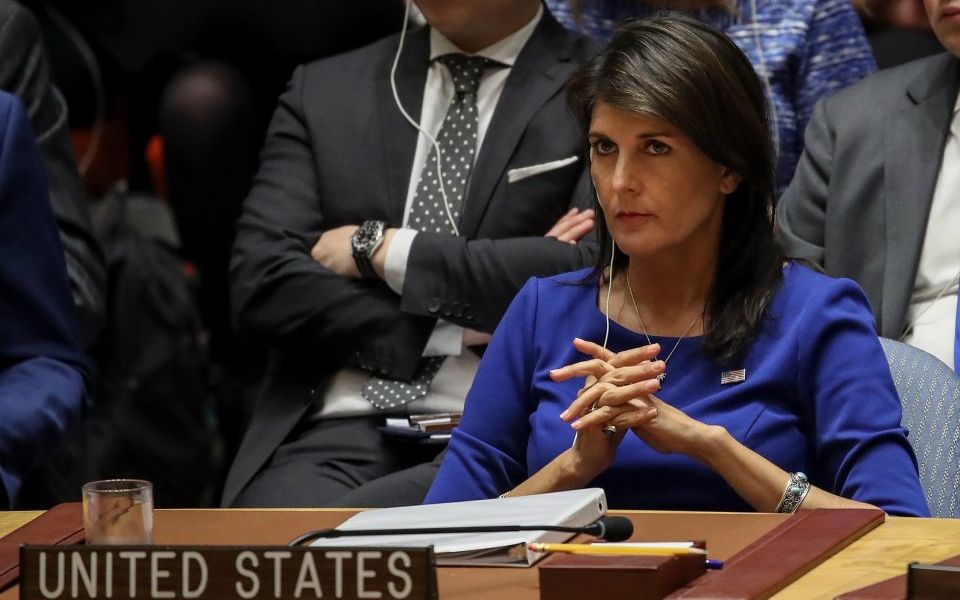Keep an eye on UN reform after the departure of Nikki Haley

Nikki Haley, former governor of South Carolina, this week resigned without warning as President Trump’s ambassador to the United Nations.
Haley has not given a reason for her exit, and her replacement is yet to be named, but her departure is an opportunity to examine both the UN and her role within it.
Donald Trump’s election heralded a remarkable shift in the way the US approaches global governance bodies, such as the G7, the WTO, and the UN. Haley’s actions representing her country and its administration were therefore, at times, controversial.
Read more: Policing Trump's UK visit cost £18m
But the UN as an institution has been ripe for reform for many years, and the approach of the US, while bombastic in many ways, was not wholly without merit in pushing an agenda for change.
For example, removing the US from the Human Rights Council may seem like the act of an isolationist nation. But when viewed as a refusal to engage with such a council while Saudi Arabia retains a seat, it is entirely in keeping with the negative public opinion on that regime’s current actions – domestically and internationally.
One relationship has come out of Haley’s appointment that has been somewhat overshadowed by the world’s mixed feelings on Trump’s questionable attitude to global governance, and that is her partnership with the UK’s ambassador, Karen Pierce. Her resignation breaks up the female dynamic duo on the Security Council.
In her short time at the helm, Pierce has made a name for herself with barnstorming speeches and meticulously fact-checked and well-reasoned attacks on those countries which would harm the UK’s interests and allies. She is unquestionably one to watch, and should be considered as a possible future head of the UK Foreign Service.
This zeal in the chamber was a common trait between the two women, one a career diplomat and the other a political appointment of her administration.
Together, they saw our two nations publicise the atrocities of the chemical weapons attacks by the Assad regime in Syria, hold Russia to account over the nerve agent attack on UK soil, and speak up for some of the most neglected conflicts in the world, like the civil war in South Sudan.
Pierce’s warm and heartfelt public tribute to her professional friend and ally after Haley’s resignation announcement is an unusual foray into political commentary for a notoriously apolitical civil servant. But it is entirely in keeping with her open approach to digital diplomacy. Perhaps it is her neutrality which allowed her to work so effectively with her American counterpart.
The voices of the US and the UK have never been more important in global statesmanship. The challenges faced by our two countries from some of the other permanent members of the Security Council are of a seriousness the likes of which we have not seen since the height of the Cold War.
But it is easy to prioritise the internal, domestic squabbles of our national politics in the coverage of our nations’ administrations. Maybe that’s why the bond between these two powerful women never made the headlines – but they became important players, and their alliance was a vital strength in international discourse.
Multilateral diplomacy is nuanced and delicate – two things which do not come naturally to either the current US President or the coverage of his administration, including of Haley. But these are dangerous times for global dialogue, and sometimes an outspoken politician is the best possible herald of an era of reform.
Pierce certainly found a way to transcend politics and work with Haley. Others should follow her example.
Haley has opened debate on the future of the UN in its current form. And while the world would do well to enter a period of reflection on its role as a global institution, Trump would also be wise to replace Haley with someone who will continue her good work, while balancing the bombast of his administration.
Read more: Heed the history and beware Saudis floating oil companies